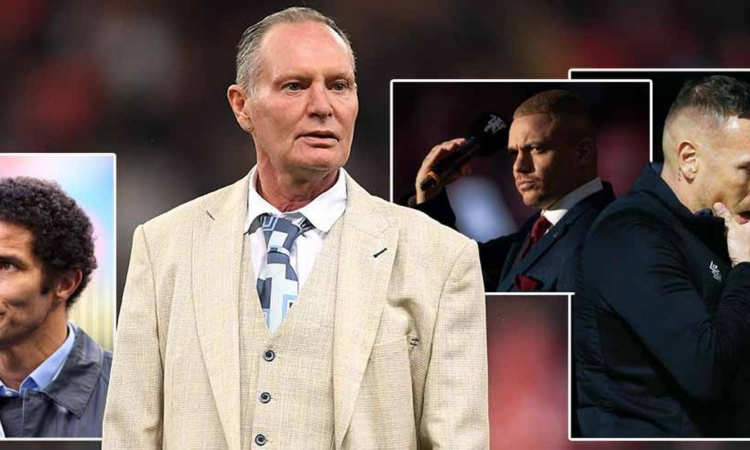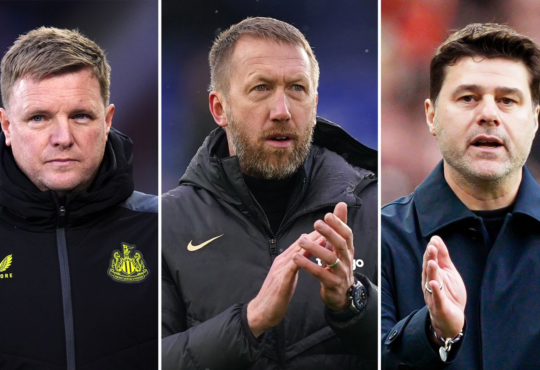
SPECIAL REPORT: An estimated 40% of footballers are at risk of bankruptcy within five years of retirement and Mirror Football learns from expert former players that risk will remain for current generation
Gareth Farrelly was in the early stages of recovery from the aneurysm that almost killed him when the taxman turned up at his front door. The former Aston Villa and Everton midfielder owed almost £50,000 relating to a film investment scheme – and he had no idea.
For Farrelly it began a journey to becoming a solicitor who has worked with UEFA and the Premier League. But it is also a cautionary tale for so many footballers who continue to get caught up in investment plots that few really understand.
Gary Lineker, David Beckham, Steven Gerrard and Wayne Rooney have all been named as investors in the film schemes, which were set up to aid the failing British industry in the late 90s.
When HMRC were given retrospective power to call in tax reliefs more than a decade ago, however, Farrelly says “more than 400 players had liabilities in excess of a billion pounds.” Except beyond those affected “no one cares” that they were missold the investments by agents and financial advisers who ensured “the person carrying the risk was always the player.”
The problem, the ex-Ireland international says, was that the schemes and the fallout were far more complicated than initially explained and “people don’t want to do complex.” Players thought they were investing in the development of blockbusters such as Avatar and Life of Pi. But when legislation changed to allow HMRC to call in their debts, it became easy to mislabel the impacted footballers as tax dodgers who knew what they were doing.
“That’s because people don’t want to have to think about it, do the details,” Farrelly says. “Footballers pay an incredible amount of tax. I’m yet to meet a player who has a warped interest in tax.”
Yet the schemes are just one more reason why an estimated 40 per cent of footballers are at risk of bankruptcy within five years of retirement. It's an epidemic that the sport is reluctant to engage with.
“It’s a scary statistic,” says Dr Graeme Law, a former defender who played for York City and is now the associate head of school at York St John University. Law’s PhD was about the relationship between money and footballers, unearthing details that veered from sad to shocking. He surveyed more than a hundred players, from the top of the pyramid to the bottom.
“It’s hard to interview footballers about anything other than matchday,” he says. “But money is a topic they don’t want to touch. I was surprised that those at the top were having the same experiences as those who have had modest careers. There’s an element of distrust throughout, players have been stung by agents and friends.”
One respondent would delete gambling apps from his phone when he got home from training so his wife would not find out. Others detailed how they could not get a mortgage because the bank would say their contracts were too short.
Then there was the tale of a League 1 player dropping his child off to school. As the boy got out of the car, a friend asked if his dad was a footballer. Their teacher was standing nearby and loudly said: “He must not be very good then, look at the car he is driving.” Law adds: “That hit the player hard because it felt like the teacher was saying he wasn’t good at his job even though he was almost certainly earning more than her.”
TNT Sports gives you access to games across the Premier League, Champions League, Europa League, Serie A and many more. You can also watch the biggest clashes in boxing, UFC, WWE and the get exclusive action from MLB all for one payment every month. You can watch TNT Sports through BT, EE, Sky, and Virgin Media.
Small snapshots that formed a collage of why, as Law says, being a pro is “not all it’s cracked up to be” because of the chasm between financial perception and reality. Gambling formed a central part of his research and the ability for players to place bets on their phones has made that particular problem worse – though Law says those he interviewed insisted they would bet on the horses and dogs, never football.
“As their lives become more constrained around what they can do away from their football club, and to relieve the boredom of the daily routine, covert gambling has become more prominent,” he says. “It’s far easier for players to gamble now and it’s one of the few things they can do if they keep it private.”
The secrecy and suspicion does not help. Law found that many whom he knew personally would not even speak anonymously. Craig Bellamy and Lucas Neill are among the former stars who have spoken about their bankruptcy in the past year. Former England internationals Emile Heskey and Wes Brown have been served bankruptcy orders in recent months, joining the likes of Paul Gascoigne, David James, John Arne-Riise and Brad Friedel on a brutally long list.
“Those stories lead to three days of faux outrage before it’s all forgotten again,” Farrelly says. Yet it is easy to understand the sensitivity when, as Law puts it, dressing rooms are shaped by the need to conform. “There are pressures, there are insecurities,” he says. “Players want to be seen as highly-valued and one way of demonstrating that is through what they are purchasing.
“Nice clothes, cars, a nice watch, the latest headphones. There are images to conform to so players lower down and young players look at what the top players are wearing to be accepted within that group. That becomes a habit and it’s hard to break it. It’s difficult to maintain the lifestyle.”
Any belief that financial problems will not affect the current group of Premier League stars, on far higher salaries, is misplaced too.
“You’ve got a house, car, lifestyle commensurate with your football contract,” Farrelly says. “You make one or two bad investments and you’re done. You will never be able to carry the losses, based on initial net investments. This emphasises the importance of having good people around you.”
Law agrees. “If you get a five-year deal in the Premier League you earn a lot of money but it could be your only deal and needs to last the rest of your life. It’s not what it’s cracked up to be.”
And while film schemes have been eye-opening, Farrelly looks at the development of cryptocurrencies, NFTs and business start up opportunities and realises there will always be a next risky investment off the conveyor belt. “It’s still a minefield because of the sophistication of the products available,” he adds.
What are the solutions, then? The PFA last year set up a business school for its members to receive education and they always encourage players to ensure their independent financial advisors are properly regulated. Financial education modules are built into scholarship programmes across professional academies.
And some clubs have gone above and beyond to help former players in financial trouble. Several years back Chelsea quietly put an ex-star up in one of the hotel rooms at Stamford Bridge after he was made homeless, offering him a place to stay while he got back on his feet. They are unlikely to be alone in terms of gestures towards those who have fallen on hard times.
TNT Sports gives you access to games across the Premier League, Champions League, Europa League, Serie A and many more. You can also watch the biggest clashes in boxing, UFC, WWE and the get exclusive action from MLB all for one payment every month. You can watch TNT Sports through BT, EE, Sky, and Virgin Media.
While no one is asking for hand holding, there can still be far more done around education of players and the regulation of shady financial advisers and agents.
Law has visited clubs to speak about the many pitfalls and adds: “More education at a younger age is what’s needed. But whose responsibility is it? The clubs or agents looking after their players? The union, the PFA?”
Farrelly has even more questions yet to be answered. “There has to be a degree of honesty around this. Is there a genuine desire to affect change? Are you doing something because it’s great or a corporate social responsibility opportunity? Is there a genuine desire across the game? Who’s really getting to the core of this?” Until some of those are answered that startling, shocking 40 per cent figure is unlikely to shrink.
Join our new WhatsApp community! Click this link to receive your daily dose of Mirror Football content. We also treat our community members to special offers, promotions, and adverts from us and our partners. If you don't like our community, you can check out any time you like. If you're curious, you can read our Privacy Notice.
Get the FREE Mirror Football newsletter with the day’s key headlines and transfer news straight into your inbox






